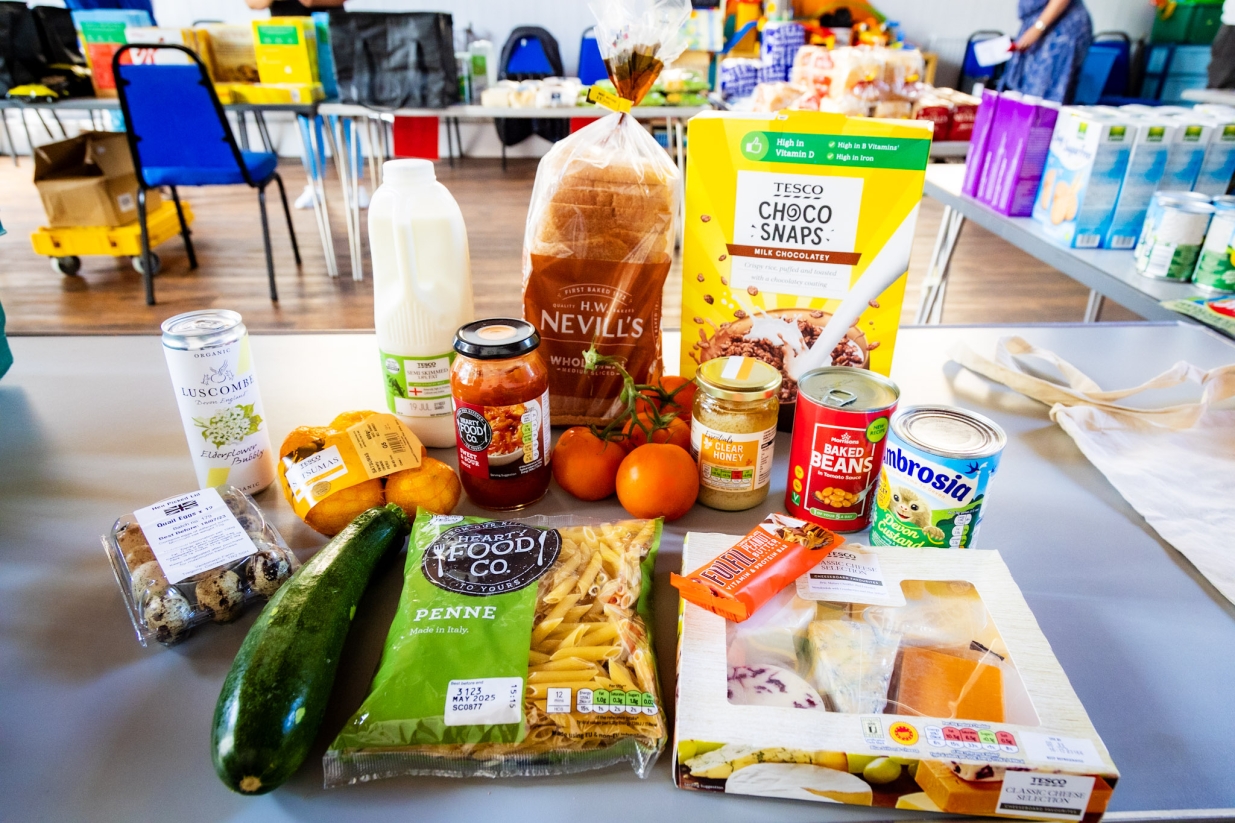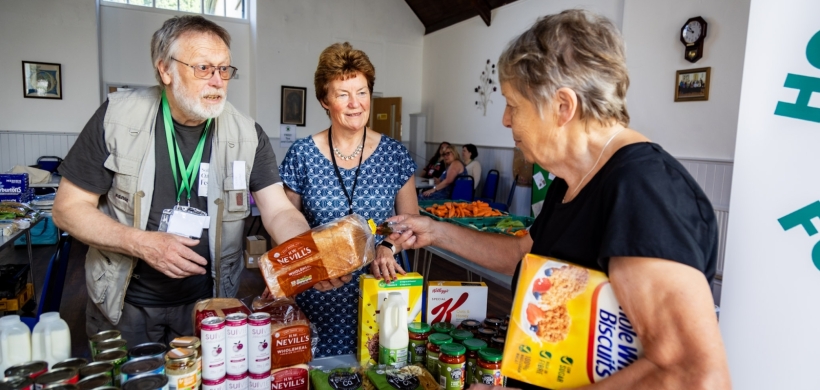Holsworthy Food Hub receives additional funding to keep its doors open to support a community.
It launched in May 2023, and in its first six months was already supporting nearly 100 households. Over the winter, its food support has been in need as heating bills rise, and high food costs bite harder.
The project has now secured an Awards for All grant of £7,250 which means that it can keep running and is financially secure for the next few years. This grant will fund rent and some of the food costs.
Start-up costs were funded by LiveWest and a grant from Devon County Council’s Community Resilience Fund. It also received smaller grants from Torridge District Council and Holsworthy Town Council.
A regular visitor to the food hub said: “I want to say thank you for the food hub! Mum was very happy with the variety and has been able to eat every day. She felt very comfortable and didn't feel any judgement at all.”
Households can buy a bag of food from the hub for £5 with a value of around £15, larger households can buy two bags. The team expect the hub to be sustainable and self-funding once they’re fully established in the community.
The project supports Holsworthy Community Fridge, which is also part of Holsworthy Food Projects CIC, ensuring no food goes to waste.
Alison Knight, our Community Connector leading on the project, said: “In January, we sold our 1000th bag of food, which means this project has bought an estimated £10,000 of extra food into the pockets of low-income households in Holsworthy. We aim to aid value of at least £10 to the bag cost of £5.”

Dartmoor Multi Academy Trust (DMAT) TTVS, Torridge Volunteer Services (TTVS) and other partners had a role in helping set up and run this project.
Holsworthy’s main supermarket is a Waitrose, and the nearest budget supermarket is over eight miles away. People with limited money, no transport or mobility issues are likely to buy additional food from local convenience shops at higher prices.
“We based our model on Feeding Devon, which is how we heard about FareShare South West,’ Alison said.
“FareShare South West supply around a third of our food. We then buy low-cost supermarket food, as we always want to be able to give out cereal, milk, pasta or rice, and something like a jar of pasta sauce: staples so people can rely on us.
“We wouldn’t have a project without FareShare South West support. They bring the added value to the table: high-quality, high-value products and fresh food that keep people coming back. It makes it worth more.”
This is a rural area, leaving many people feeling isolated. As well as an affordable place to shop, the hub offers free refreshments and a warm welcome.
Recipes are shared at the hub, and people enjoy swapping photos of what they’ve cooked on the hub Facebook group.
The project also nurtures the people it supports. Four of the volunteers started as customers. As well as this, four volunteers are now training as volunteer co-ordinators, gaining qualifications in food hygiene, and taking on more responsibilities.
Alison said: “We’re empowering the people who are using the service to help develop and design it. So far, the hub seems to appeal to people who feel reasonably confident about cooking, but we’ll be asking if people would like cooking demonstrations.”
Longer term, the team would like to connect people to other services to improve their financial situation, and to open as a warm hub. They’d also like to offer a delivery service to residents who aren’t able to come to the hub.
